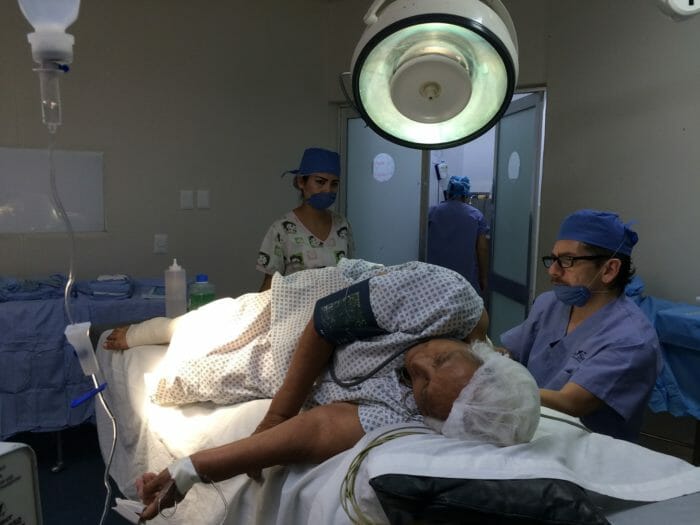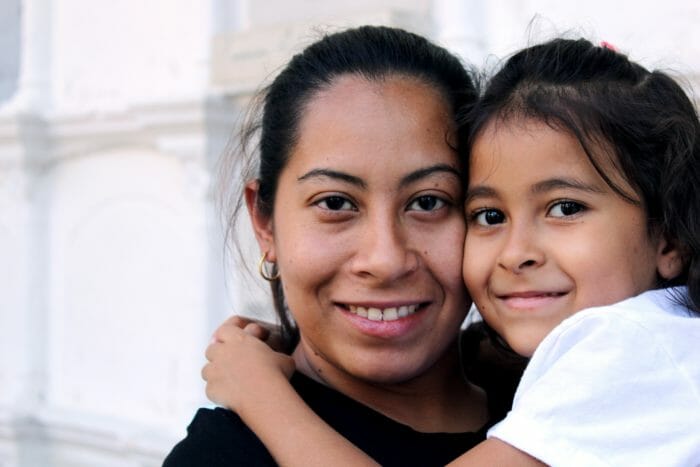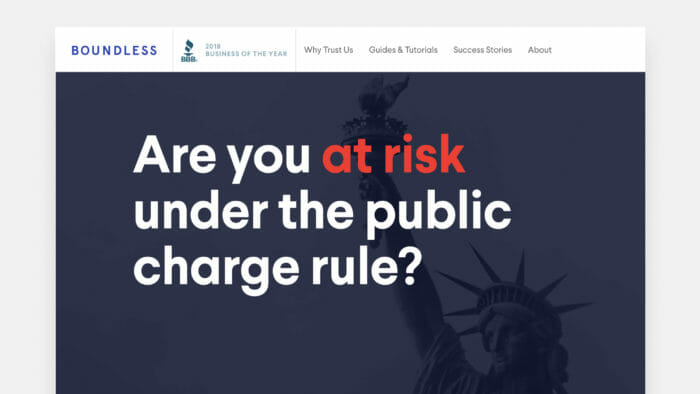do video game designers get health insurance
IMPORTANT UPDATE — MAY 14, 2021:The Biden administration revoked the Trump-era ban on immigrants who were unable to afford health insurance or pay for medical costs. The health insurance requirement is therefore not in effect. Learn more here.
In a recent proclamation, President Trump ordered consular officers to deny green cards to applicants who are unable to show either that they will have unsubsidized health insurance or that they will have enough money to pay for medical expenses once in the United States.
That means that from Nov. 3, 2019, green card applicants living abroad and using consular processing will face a new hurdle when seeking to relocate to the United States. The order chiefly targets family-based green card applicants (close relatives of U.S. citizens and current green card holders), although some other categories of immigrants will also be affected.
The health insurance requirement is a major policy change that could lead to 375,000 people a year having their green card applications rejected, according to the Migration Policy Institute, a Washington think tank. If you're a green card applicant, it's vital that you understand what's expected of you under the new rule.
This guide will cover:
- What does Trump's order say?
- Who is affected?
- What kind of insurance is required?
- How can you prove you'll get insurance?
- How much money do you need?
- Is this connected to the "public charge" rule?
- What happens next?
The rush to enforce the new proclamation has created a chaotic and confusing situation, so it's more important than ever to get the guidance you need as you complete your green card application. With Boundless, you get the confidence of an independent immigration attorney who will review all of your materials and answer any questions you have — for no additional fee. Learn more, or check your eligibility today.
Looking for suitable coverage that will meet the new requirements?Visitors Coverage provides a number of short-term travel insurance options, while eHealth offers full service and major health care plans.
Disclosure: Boundless may earn a referral fee if you decide to purchase a product or service after clicking a link to one of our partner providers.
What does the proclamation say?

President Trump's order requires consular officials to deny immigrant visas to applicants who they believe will "financially burden the United States healthcare system." Under the new executive order, people applying for green cards from abroad, using consular processing, will be required to show either that they will buy health insurance within 30 days of entering the United States, or that they have sufficient financial resources to pay for any reasonably anticipated medical expenses.
The order says that applicants must demonstrate their ability to pay for insurance, or likely medical expenses, "before the adjudication and issuance of an immigrant visa." While the details are still being hammered out, applicants will now face additional questioning specifically regarding health insurance coverage during their consular interview.
The proclamation also explains why the President believes the rule to be necessary, and incorrectly implies uninsured immigrants are falling back on government-funded health care, thereby driving up health care costs for Americans by $35 billion a year. Immigration advocates and health care experts say that's inaccurate, and that immigrants' tax payments help fund the U.S. health system, and reduce health insurance premiums for U.S. citizens.
You can read the full text of President Trump's proclamation here, and get further analysis and updates on the Boundless blog.
Who is affected by the proclamation?

President Trump's proclamation applies to virtually all immigrants applying for green cards from outside the United States using consular processing. Since the rule is intended to prevent people without health insurance from entering the United States, it doesn't apply to people who are already in the country. If you're within the United States and applying for a green card through adjustment of status, the new order doesn't affect you — though you could still be affected by the public charge rule (more on that below).
There are a few classes of immigrants who are specifically excluded from the new health insurance mandate:
- Anyone with an immigrant visa issued before the effective date of the proclamation (Nov. 3, 2019)
- Green card holders seeking reentry under SB-1 ("returning resident") visas
- Refugees and asylum seekers
- Iraqi or Afghan nationals entering using Special Immigrant Visas
- Unmarried children (under the age of 21) of U.S. citizens
- Orphans or other children being adopted by U.S. citizens
- Immigrants admitted in the national interest, or to further law enforcement goals
All immigrants under the age of 18 are also excluded from the new rule, unless they are accompanied by a parent who is subject to the rule. Immigrants who hope to bring their children to the United States with them will be expected to acquire health insurance to cover their whole family.
Parents of adult U.S. citizens are also excluded from the new rule, but only if they can show "to the satisfaction of the consular officer" that they won't become "a substantial burden" on the U.S. healthcare system. In practice, that means parents of U.S. citizens will likely need to show either that they will get health insurance, or that they or their sponsoring child can pay for any medical treatment.
New immigration rules are always complicated, but Boundless stays with you until the green card finish line, helping you keep on top of interview preparation, follow-on forms, and every other important milestone along your immigration journey. Learn more, or check your eligibility for free.
What kind of health insurance do you need?

The president's order defines a few different kinds of health insurance that are acceptable:
- Employer-sponsored plans, including retiree plans, association health plans, and coverage under COBRA
- Any unsubsidized health plan bought through an Obamacare marketplace
- Short-term insurance covering at least 364 days, or until the start of a planned period of travel outside the United States
- Catastrophic plans
- Coverage under a family member's health insurance
- Certain military health insurance programs, including TRICARE
- Medicare plans
- Other plans approved by the Department of Health and Human Services
For people over the age of 18, Medicaid coverage doesn't count as acceptable health insurance. Note too that while green card holders are eligible for Obamacare subsidies, only unsubsidized Obamacare plans — those purchased without using any tax credits or other subsidies — will be accepted for the purposes of the proclamation. That means that 85% of the plans currently purchased through Obamacare exchanges wouldn't qualify under the new system.
Some experts believe that insurers will begin to offer "skeleton" products that provide the bare minimum of coverage needed to qualify under the new requirement. Those will take time to develop, though.
One potential headache for would-be immigrants: many employer-sponsored plans have a 90-day waiting period before coverage begins, and so wouldn't provide coverage within the 30-day window required under Trump's order. It's not yet clear how such plans will be treated, but it's possible that simply having a job and employer-sponsored coverage lined up might not be enough to satisfy the new requirements.
Another possible problem: short-term plans aren't available through Obamacare marketplaces, and about a dozen states have restricted or banned these plans, while others only allow them to be issued for 3 or 6 months' duration — not enough to meet the requirements of the Trump proclamation. That means immigrants will need to check state insurance rules while trying to figure out their options.
Looking for suitable coverage that will meet the new requirements?Visitors Coverage provides a number of short-term travel insurance options, while eHealth offers full service and major health care plans.
Disclosure: Boundless may earn a referral fee if you decide to purchase a product or service after clicking a link to one of our partner providers.
How can you prove you'll get health insurance?

The presidential proclamation doesn't say how immigrants are expected to show that they will obtain health insurance within 30 days of arriving in the United States. The order simply says that immigrants must show "to the satisfaction of a consular officer" that they will comply with the order's requirements, and that the Department of State can establish rules and processes to determine how that adjudication will be made in practice.
One way to prove that you will have health insurance is to get coverage in advance of your consular interview. Some legal experts think that isn't currently necessary, though, and that simply identifying a suitable policy and showing that you have money set aside to purchase it will be enough to convince consular officials. Unfortunately, it will take some time before clear guidelines are established.
The order does state that the consular official's decision should be made separately from any other decisions or adjudications they make about the applicant's admissibility. That means that you could pass all the other requirements for a green card, including the new public charge test, and still be denied a visa under the new proclamation.
Keep in mind: the executive order specifically states that anyone who "circumvents" the proclamation, or misleads officials about anything relating to their health insurance coverage, should be targeted for deportation once they arrive in the United States. As always, it's crucial to be honest with government officials at all times.
Boundless can help you respond to government questions and prepare for your green card interview. Learn more about what Boundless does, or start your application now.
How much money do you need?

Unfortunately, the government hasn't yet issued any guidance about the income or assets that will be required to pass the wealth test implemented by the new proclamation. That means there's no way to know for sure whether you're wealthy enough to be issued a green card without having health insurance.
One possibility is that the government will use similar guidelines to those included in the public charge rule. As part of that rule, officials will consider an income above 250% of the federal poverty guidelines as a "heavily positive" factor — the same weighting the public charge rule gives to an individual having private, unsubsidized health insurance. If the government is consistent — and that's a big if — then the same income level could be used for the proclamation's income test, too.
For the time being, though, this is speculative. We'll have to wait for clear guidance from the government before we can know for sure. Be sure to keep checking the Boundless website for updates.
If all of this sounds complicated and intimidating, don't worry! With Boundless, you get an independent immigration attorney who can answer all legal questions related to your application. Learn more about how we help, or check your eligibility for a marriage-based green card.
How does this relate to the public charge rule?

The public charge rule is a separate policy that, like the new proclamation, aims to deny immigration benefits to green card applicants who the government believes won't be able to financially support themselves in the United States.
The public charge rule is more sweeping than the new proclamation, and allows officials to deny immigrant visa applications based on an immigrant's employment prospects, age, health, financial situation, and even English proficiency. However, because the public charge rule is based on the "totality of circumstances," it requires officials to weigh positive and negative factors against one another, so an applicant who lacks health insurance might still pass the public charge test based on other positive factors.
By contrast, the new proclamation instructs officials to consider health insurance coverage in isolation, without looking at any mitigating factors other than personal wealth. An applicant might pass the public charge test despite lacking health insurance, based on other positive factors, only to be denied a green card under the new proclamation.
Unlike the president's proclamation, the public charge rule affects both immigrants within and outside the United States. Courts have temporarily blocked the public charge rule for applicants within the United States, but the U.S. Department of State is still applying its own public charge test to applications processed by consulates and embassies. You can get the latest updates on the public charge rule, and use the Boundless Public Charge Risk Estimator to see how the new rule might impact you.
Do you have confidential questions about how your situation might affect your green card application? With Boundless, you get an independent immigration attorney who can help you understand your options. Learn more, or get started today.
What happens next?

President Trump's proclamation left an unusually short window of time for officials to decide how to implement its requirements, and agency heads are currently scrambling to figure out the details. At present, it isn't even clear which agencies are responsible for figuring out how to enforce the proclamation. Because the order will be ultimately carried out by individual consular officers, it could be some time before a clear picture emerges of exactly how the proclamation works in practice.
In part because of the rushed and chaotic implementation of the proclamation, both immigrants and immigration advocates are almost certain to file legal challenges against President Trump's order. In fact, the proclamation itself specifically envisions such challenges, and insists that even if some parts of the order are deemed unlawful in isolation, the rest of the order must still be implemented as planned.
Lawmakers are also pushing back against the proclamation, arguing that it clashes with federal laws that allow permanent residents to use Obamacare subsidies. One key concern is that the proclamation appears to have been designed to push immigrants into purchasing short-term "junk" plans, rather than robust health insurance plans like those available on the Obamacare exchanges.
It's possible that courts will suspend the new proclamation, just as they have done with the DHS public charge rule. In the meantime, however, it's important to assume that the proclamation will remain in force, and to plan accordingly as you prepare your green card application.
Government reports
Several government agencies, including DHS and the Department of State, are required under the proclamation to submit reports on the usefulness of excluding immigrants based on their health insurance coverage, and on any other measures that should be taken "to protect the integrity of the United States healthcare system." The first report is due on May 1, 2020, after which the agencies are required to submit a new report every 12 months.
The proclamation also requires department heads to notify the White House immediately if they determine that the proclamation is no longer necessary. That could give the government an exit-ramp if the new proclamation proves too difficult to enforce.
While the State Department appears determined to press ahead with the health insurance requirement, there's still time to weigh in: The government will acceptpublic comments on the new policy until Nov. 1.
do video game designers get health insurance
Source: https://www.boundless.com/blog/new-health-insurance-requirement-explained/
Posted by: ellisreem1944.blogspot.com

0 Response to "do video game designers get health insurance"
Post a Comment